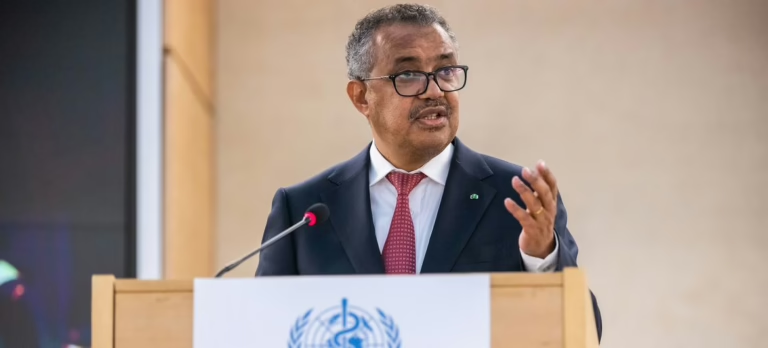The European Union (EU) and the World Health Organization (WHO) have reaffirmed their collaborative dedication to promoting universal health coverage (UHC) through the initiation of Phase V (2025-2028) of the UHC Partnership, WHO’s most extensive initiative aimed at fortifying health systems globally.
This announcement was made on Monday by Jozef Síkela, the European Commissioner for International Partnerships, alongside WHO Director-General Dr. Tedros Adhanom Ghebreyesus, during the 80th United Nations General Assembly in New York.
In this upcoming phase, the EU is committing €40 million in funding, with plans for an additional allocation in 2027. These resources will support nations in developing resilient, equitable, and patient-focused health infrastructures, which are essential for meeting the health-related Sustainable Development Goals (SDGs).
Since its inception in 2011, the UHC Partnership has aided health ministries in over 115 countries by facilitating inclusive reforms, enhancing governance, improving health financing mechanisms, and bolstering responses to health crises. This program has led to tangible progress in service accessibility, benefiting upwards of three billion individuals worldwide.
Dr. Tedros praised the EU’s renewed support as a vital lifeline for countless people. “Universal health coverage can only be achieved through collective effort, and the strengthened alliance between the European Union and WHO will enable millions globally to obtain the quality health care they require,” he emphasized.
Commissioner Síkela highlighted that robust health systems are a fundamental element of the EU’s Global Gateway strategy. “Sustainable development, resilience, and global security all depend on strong health systems. By partnering with WHO to advance universal health coverage and backing local production, regulatory standards, and workforce development, the EU is committed to guaranteeing that everyone has access to quality health services without financial barriers,” he explained.
Phase V will focus on enhancing health financing, governance, and systemic reforms; fostering data-driven planning and policy discussions; ensuring accessible, integrated health services-including sexual and reproductive health and care for noncommunicable diseases-and advancing equity, gender equality, and climate adaptability.
This initiative is in harmony with the EU’s Global Health Strategy and WHO’s 14th General Programme of Work (GPW14). WHO underscores that this partnership is especially crucial as countries face challenges such as climate change, economic volatility, and diminishing development aid.

















